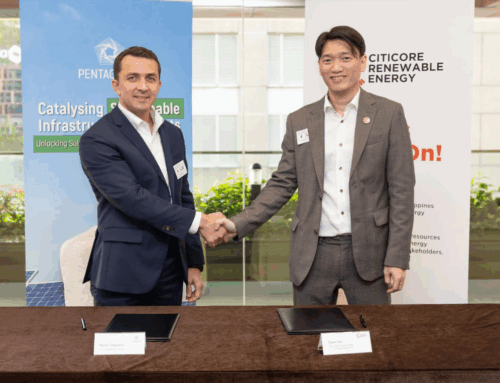NAU’s Fix-it Clinic promotes environmental and financial sustainability
October 26, 2025
The NAU Office of Sustainability focused on clothing repairs for its first Fix-It Clinic on Oct. 14 in the Cline Library MakerLab. The event was part of the university’s broader efforts to reduce waste and promote sustainable practices around campus.
From 11 a.m. to 3 p.m., volunteers repaired over 80 items ranging from sweaters and pants to the NAU mascot outfit. The 19 volunteers included Flagstaff residents, NAU students and staff.
Danielle Linthicum, conservation programs coordinator for the Office of Sustainability and organizer of the event, said the turnout shows there is a clear demand for these types of repairs for NAU students.
Linthicum organized the clinic in consultation with the City of Flagstaff’s long-running Fix-it Clinics. She said the program is part of NAU’s effort to teach students, faculty and staff how to live more sustainably on campus, which is part of NAU’s Carbon Neutrality Action Plan.
The Carbon Neutrality Action Plan aims to create a culture of sustainability and achieve carbon neutrality at the university by 2030. The plan includes goals like maximizing energy and water efficiency in buildings, purchasing clean energy sources and switching the campus buses from gas to electric.
Linthicum said the clinic’s goal is to reduce waste on campus and promote fixing items over purchasing new ones. She said as the program moves forward, she hopes to expand toward fixing other items and making the clinic a fixture on campus.
“Our goal is that eventually, people will know this is happening regularly and if they have something that’s broken, they can just wait and bring it to our clinic and get it fixed,” Linthicum said. “We hope it really becomes embedded in campus culture.”
The City of Flagstaff’s Fix-it Clinics repair clothing, appliances, electronics and jewelry. Steven Thompson, section manager for the Flagstaff Sustainability Office, said the city has hosted the clinics for over a decade. He said on average each clinic diverts over 500 pounds of waste.
Thompson helped guide NAU’s Office of Sustainability in organizing their first clinic. He said he was excited to see NAU replicate the city’s model on campus.
“If you’re living in a dorm or on campus, it may be challenging to retain items that are broken,” Thompson said. “Access to tools, equipment and knowledge to get something repaired might not be readily available, so it’s really exciting to see the initiative moving forward on campus.”
He said initiatives like this can play a big role in making sustainability accessible by both educating the community and providing resources that help people give their items a second chance.
At NAU’s clinic, participants brought in clothing with rips, tears, broken zippers and missing buttons. Upon arrival, they filled out a card with their information and a description of what needed to be fixed.
Volunteers assessed the damage and decided on the best solution for repairs. For more complicated damages, participants could talk with volunteers who would explain to them different repair options and techniques.
Natalie Loring, a Flagstaff resident and volunteer, said she is constantly looking to use her background in theatrical costume-making to make a difference.
“I’m really glad I’m able to use a skill that I have that not everyone else has and be able to help people who might not be able to repair their own clothes,” Loring said.
The event served not only to repair people’s belongings, but as a resource for attendees to learn what clothing repairs were possible. This learning also extended to volunteers, who ranged from those who sew a little bit in their free time to those who have businesses in the industry. Many of them learned techniques from one another.
“There’s a lot of things that you can do on your own,” Thompson said. “With just a little extra knowledge or resources, people can tap into that.”
With hopes to spur behavioral change at NAU, providing education and resources to promote sustainable practices is one of the practical applications of the Carbon Neutrality Action Plan.
Linthicum said in the future, she wants the Fix-It Clinic to be more educational, providing information on the impact of waste and how item repair can make a difference.
“There’s a myth that what you do as an individual doesn’t matter,” Linthicum said. “I want to encourage people that we as individuals do have power.”
The United States Government Accountability Office published a report on textile waste in December 2024, estimating a more than 50% increase in textile waste from 2000 to 2018 – largely due to fast fashion.
Loring said repairing clothing is a small action that can help people slow their consumption.
“The impending climate crisis weighs really heavy on a lot of us,” Loring said. “Mending your clothes, whether you do that or whether you ask somebody else to, someone who volunteers their time, is a really tangible way to cope with that.”
The NAU Fix-It Clinic is not the only way to repair clothing or other items in Flagstaff. The city’s Fix-It Clinics are held a few times a year and are available by appointment. Cline Library has sewing machines, donated fabric and educational online resources available to learn some basics.
Lithicum said the benefits of the Fix-It Clinic and clothing repairs in general do not stop at environmental sustainability.
“It’s about financial sustainability as well,” Linthicum said. “It’s much more financially beneficial to repair your clothes, especially here, where you can do it for free, than to buy new ones.”
The date for the university’s next Fix-It Clinic will be announced on the NAU Fix-It Clinic website.
Search
RECENT PRESS RELEASES
Related Post



